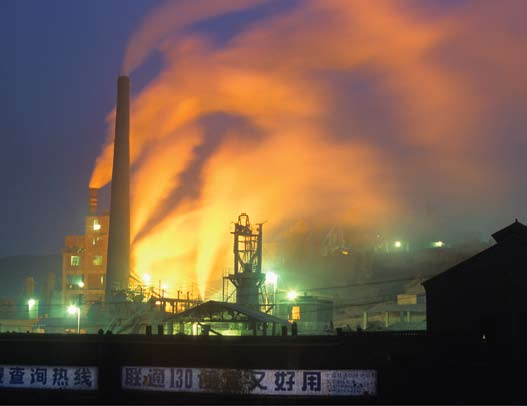China now leads the world in consumption of coal, says Edward Levy, director of Lehigh’s Energy Research Center (ERC), and is seeking outside expertise to enable its power plants to run more efficiently and cleanly.
The ERC last summer joined forces with a Chinese company to demonstrate the effectiveness of Boiler OP, a combustion optimization technology, at a large coal-fired power plant near Beijing.
“China’s new power plants are very sophisticated,” says Levy. “They combine the best of the West and the East. But although several hundred power plants in the U.S. use various forms of combustion optimization, the concept is only now starting to catch on in China.
“Boiler OP is one of the first combustion optimization approaches to be tried out in China.”
Developed by Lehigh researchers in the mid-1990s, Boiler OP has been implemented at more than two dozen U.S. power plants. The technology gathers data on the effects of boiler operating conditions on power plant efficiency and pollutant emissions. It integrates the data with artificial intelligence techniques to determine the combinations of boiler operating conditions that maximize plant efficiency while minimizing emissions of nitrogen oxide and other air pollutants.
ERC engineers have overseen the implementation of Boiler OP at a 600-megawatt unit of the five-year-old Pan Shan power plant and are training Pan Shan personnel in its use.
The ERC is working on the project with the XiAn JieHua Environmental Protection Science and Technology Company of Xian, which provides engineering services to the Chinese power generation sector.
Analysis of the data generated to date, says ERC associate director Carlos Romero, shows that Boiler OP will enable Pan Shan to reduce NOx by more than 20 percent while improving thermal efficiency.
Boiler OP, which can be applied to gas-, coal- or oil-fired boilers, improves efficiency and reduces NOx by systematically adjusting a dozen or more boiler control settings. ERC engineers have developed separate software programs that work in tandem with Boiler OP, says Romero. One program automates data analysis. Another integrates data with artificial intelligence techniques and enables plant operators to modify boiler settings in real time in response to data.

